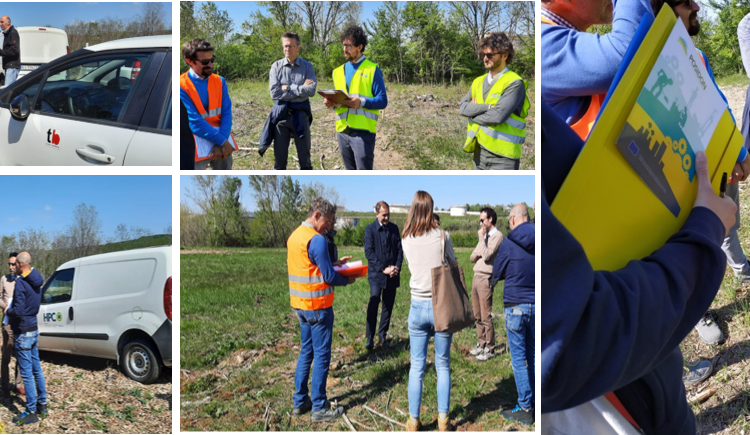The testing of two innovative technologies for soil decontamination developed as part of the European project entitled Polluted Site Decontamination Pre-Commercial Procurement (POSIDON) has started in parallel in Spain and in Italy.
POSIDON is now in its third and final phase with the delivery – by the City Council of Bilbao (Spain) and the Port Network Authority of the Eastern Adriatic Sea of Trieste (Italy) – of the polluted areas where the selected technologies are to be tested and compared.

Implemented by a consortium led by AREA Science Park and funded by the EU Horizon 2020 Research and Innovation Programme, the project was carried out through the pre-commercial procurement: the instrument through which public procurers can buy research and development activities aimed at the design and implementation of products and services of their interest not yet available on the market.
Specifically, POSIDON leveraged public demand to develop innovative technologies for soil decontamination, thus bridging the gap between supply and demand for solutions in this field.
The common challenge faced by the POSIDON buyers’ group was identifying a new cost-effective soil – and possibly groundwater – remediation technology, preferably in situ, able to decontaminate heterogeneous anthropic soils in brownfields, composed of a mixture of industrial waste, such as fill soils highly contaminated with petroleum hydrocarbons and soils consisting of clays and sands highly contaminated with petroleum hydrocarbons and heavy metals.
During phases 1 and 2 of the pre-commercial procurement (PCP), which ended in August 2021, international consortia and groupings of companies, universities and research centres developed four prototypes and validated them on a laboratory scale. The solutions proposed by TESECO BONIFICHE and HPC ITALIA were selected for field testing through a competitive procedure.
Specifically, the consortium led by HPC developed ERASE (ElectRode-Aided Soil rEmediation), a flexible modular in situplatform with installation of electrodes to reduce contamination from organic and inorganic pollutants through the transport induced by the electric field in the soil, as well as chemical and biological treatment actions by injection of chemicals and nutrients. The consortium coordinated by TESECO designed and developed the “Soil-Omic” technology that uses combined biological and chemical-physical processes aimed at the decontamination of soils and groundwater from organic and inorganic pollutants through biological formulations based on the integration of metagenomics and environmental engineering.
In order to plan future joint investment in remediation of contaminated land, the POSIDON project is extending its network of polluted sites. It is possible to receive up-to-date information on the status of implementation of the testing activities and on investment and funding opportunities by submitting an expression of interest here.

